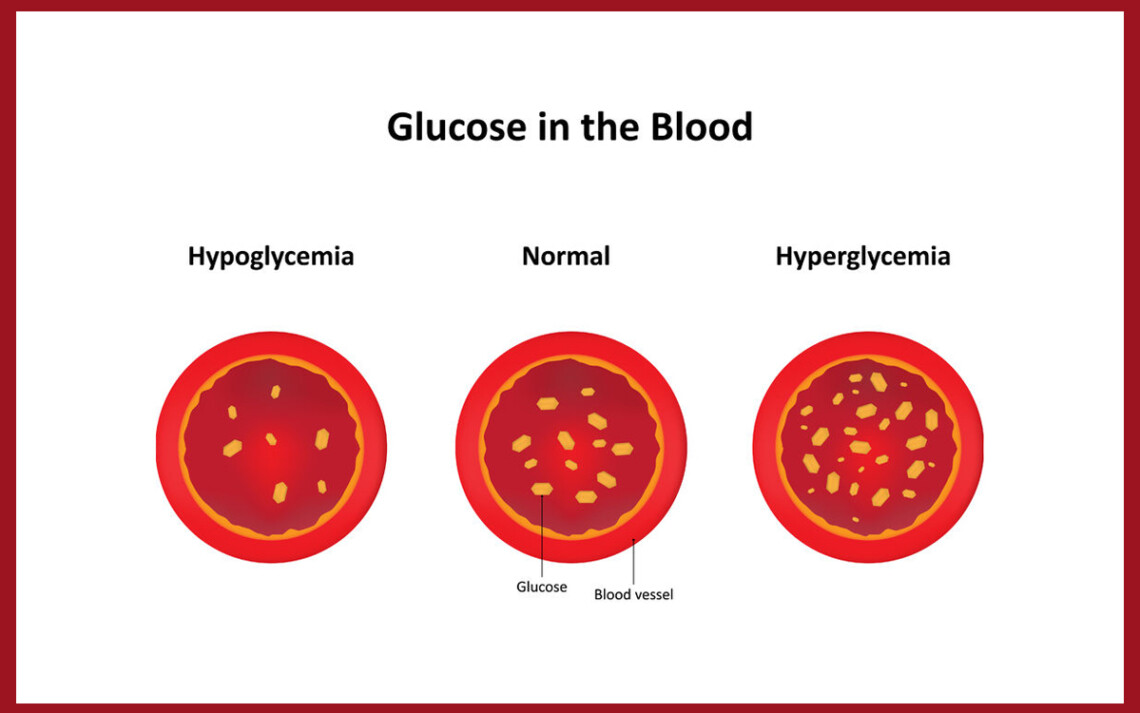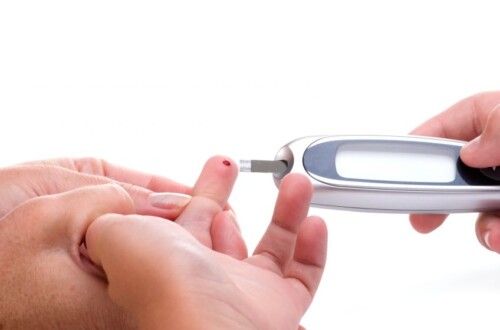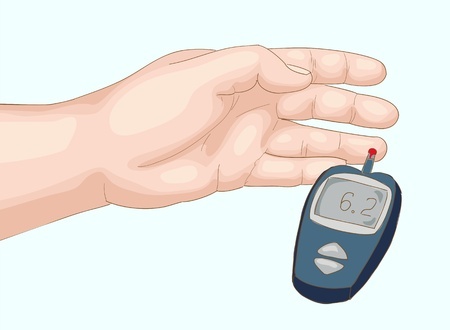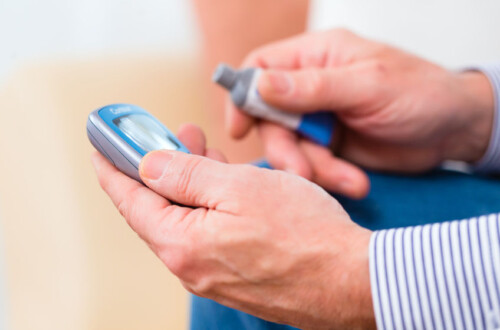 About Glucose — Your Body’s Energy Source
About Glucose — Your Body’s Energy Source
Three of the many important parts that make up your body are cells, tissues, and organs. All three of these things need fluid, oxygen and energy to sustain life. Cells get energy from food we eat that contains protein, fat, and carbohydrates.
But before our bodies can use the foods we eat it, food must be broken down and converted into glucose, a form of sugar our bodies can use for energy. and then be able to get that usable energy into cells, tissues and organs. The way the body moves energy from food (that has been converted into blood glucose) into cells and tissues is through a hormone called insulin. Insulin makes cells receptive to receiving glucose; acting like a key to open cells so that they can be nourished.
If a person does not make enough insulin, or their bodies resist the affect of insulin, they may begin to suffer from an abnormally high level of glucose in the blood stream (hyperglycemia) because cells cannot get glucose from the blood stream. People who have type 1 diabetes do not produce insulin on their own. This is why all people with type 1 diabetes (and many people with type 2 diabetes) must take insulin each day to live. Without insulin, no matter how much you ate, cells in your body would begin to die.
About Glucose (Sugar) in Your Bloodstream
The main form of energy used by your body is called glucose. Some people simply refer to glucose in the body as “sugar.” For example, you may hear a person with diabetes say they are testing their blood sugar or, that their blood sugar is too high. What they are really referring to is blood glucose levels.
Glucose is just one a many forms of sugar. It is not the same thing as the granulated sugar you buy in stores, which is another form of sugar called “sucrose.” But like all food, even pure sugar you eat must still be converted to glucose in the body before it can be used as energy or stored as fat.
Hypoglycemia — Low Blood Glucose Levels
People who do not have diabetes have a fairly constant (normal) blood glucose level most of the time. Their blood glucose tends to stay fairly even within a narrow range — not going too high or too low.
People with insulin resistance, hyperinsulinemia (high levels of the hormone insulin), and pre-diabetes have some sort of metabolic problem (the causes of each differs) that makes it hard or impossible for their bodies to properly regulate their blood glucose levels. People who take insulin or oral medications to lower their blood glucose must carefully balance medications/insulin to the amount of food they eat and their activity level.
While most people think that pre-diabetes means you suffer from elevated blood glucose levels, people who have any problems with overproduction of insulin or insulin resistance may also experience low blood glucose levels.
HYPOGLYCEMIA is when blood glucose levels are too low to be healthy or safe for the body. Hypoglycemia occurs when not enough glucose is in the blood stream. When a person has high blood glucose levels it means that their cells, tissues, and organs (including the brain) are not getting the right amount of glucose energy. Excess glucose in the blood stream excreted in urine, or, depending on medications, exercise level, and if a person produces at least some insulin on their own, may be eventually transported to cells.
People with pre-diabetes have trouble maintaining normal blood glucose at least some of the time. After eating (especially after eating carbohydrates) your blood glucose levels may go higher than normal, but not quite into the diabetes range yet. People with pre-diabetes may also have morning fasting blood glucose levels that are higher than normal. This is referred to as Impaired Fasting Glucose (IFG).
Signs and Symptoms of Hyperglycemia
The most common symptom of high blood glucose is increased thirst and more frequent urination as the body attempts to get rid of excess glucose. Other symptoms include weight loss, headache or stomach ache. Because the body is not getting energy from food that is eaten, a person with high blood sugar may also feel excessively hungry, or, like they are starving.
There are three ways you can check to see if your blood glucose levels are too high:
- A home test using an over-the-counter blood glucose meter;
- A blood test done by your doctor or in a lab;
- Urine test strips that can detect excessive amounts of sugar in the urine. Note that this will not tell you what your blood glucose levels are, only that they are high enough that you body is excreting abnormal amounts of glucose in your urine.
The Dangers of Hyperglycemia
High levels of glucose in the bloodstream can cause damage to cells, tissues, organs, and nerves. Almost every complication associated with diabetes is somehow connected directly to chronic hyperglycemia. Complications include:
- Increased rate of infections and slower healing process;
- Wounds that do not heal, become gangrenous, leading to the need to amputate;
- Kidney damage, or even kidney failure;
- Damage to nerves in extremities as well as in the gastrointestinal tract that can cause severe digestive disorders;
- Blindness; and
- Coma (diabetic ketoacidosis), brain damage, and death.
Because type 2 diabetes can take years to develop, many people do not know they have diabetes until they experience a complication. This is why it is very important that you follow up with your doctor every 3-6 months if you have been diagnosed with pre-diabetes. You doctor can help you come up with a treatment plan to avoid high blood glucose levels from damaging your body, as well as to prevent complications and the possible development of type 2 diabetes.
What causes hyperglycemia?
According to the American Diabetes Association, a number of things can cause hyperglycemia:
- If you have type 1 diabetes, you may not have given yourself enough insulin.
- If you have type 2 diabetes, your body may have enough insulin, but it is not as effective as it should be.
- You ate more than planned or exercised less than planned.
- You have stress from an illness, such as a cold or flu.
- You have other stress, such as family conflicts or school or dating problems.
Hypoglycemia (Low Blood Sugar)
Blood glucose (blood sugar) that is too low can cause disorientation, dizziness and weakness, a feeling of being shaky, slurred speech, irritability, and even coma or death. Low blood glucose levels must be treated immediately and should be considered potentially life threatening if the person is taking insulin or any type of injected or oral drug that lowers blood glucose levels or increased sensitivity to insulin.




